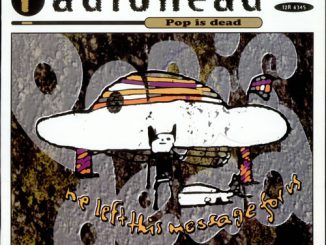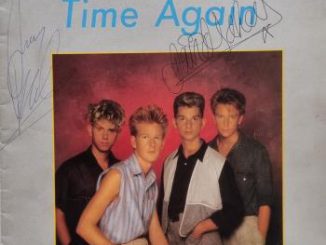Kurt Cobain and Aaliyah have new posthumous releases due, featuring unheard material. Is this fair to any musician?

Dorian Lynskey is a music writer
I love Aaliyah and Kurt Cobain, and one of the reasons I love them is that they were thoughtful, strong-willed artists who were very careful about how they presented their music to the public. They knew that not everything they touched turned to gold. So I’m uneasy about the news that they both have “new” releases coming.
In Aaliyah’s case, her producer Timbaland has excitedly tweeted news of unreleased collaborations, using no fewer than 30 exclamation marks. Cobain’s album will function as the soundtrack album to the recent documentary Cobain: Montage of Heck, and is said to range “from thrash to ragtime and everything in between” – including, alarmingly, “a sketch comedy routine”.
As a fan I’m curious, but I can’t help thinking that Cobain never intended the world to hear his ragtime goof-offs or comedy stylings. If a living artist wants to raid the vaults and illuminate their creative process by spilling every doodle or abandoned experiment, that’s up to them, but when someone’s not around to say yes or no and approval is posthumously assumed it feels intrusive. What right do fans have to hear what their favourite artists threw away?

Peter Robinson is editor of popjustice.com
I totally agree that the threat of “new” Aaliyah and Cobain music is worrying: neither artist’s catalogue has exactly been left alone in recent years, and if either artist had anything of worth in the vaults it would have been released long ago. But what if there had been another More Than a Woman in Aaliyah’s catalogue, or another Smells Like Teen Spirit in Cobain’s? I think it’s wrong to assume that just because an artist pops their clogs they leave behind nothing of worth.
Let’s imagine Adele dies tomorrow afternoon. Would we really say that the album she’s been working on for three years and must surely be almost finished, if not on the verge of a surprise release, should remain in the vaults? I’d trust the judgment of her label, XL, more than I’d trust a hunch based on the questionable quality of other artists’ posthumous releases.
Would it destroy her legacy? With respect for the hypothetically dead I’d suggest that if an artist can’t come up with anything decent in three years they don’t deserve legend status anyway. To put it another way, (Sittin’ On) the Dock of the Bay is a banger for the ages; some would say it sealed Otis Redding’s legacy, rather than annihilated it. Should that song never have been released?
DL I wouldn’t want to bury Dock of the Bay any more than Joy Division’s Love Will Tear Us Apart or Sam Cooke’s A Change Is Gonna Come because those were completed records by artists who died at their creative peak. They were meant to be heard. Regarding your grim Adele scenario, even an unfinished album, likeElliott Smith’s From a Basement on the Hill, can be shepherded to a respectful conclusion if the artist themselves laid down the blueprint. Rummaging for scraps is a different enterprise altogether.

I was impressed by the recent revelation from David Joseph, CEO of Universal Music UK, that he’d destroyed Amy Winehouse’s sketchy demos for her third album so that none of his successors could Frankenstein a record out of them. Ultimately, my objection comes down to aesthetics more than ethics. Winehouse’s 2011 collection Lioness: Hidden Treasures was pieced together by her regular collaborators with the best of intentions but it just left me feeling depressed because it highlighted how little music she created in her last five years. A posthumous collection of bits and pieces is like a chalk outline after a dead body’s been taken to the morgue: it draws your attention to what’s missing.
PR I found David Joseph’s statement moving in lots of ways. He clearly acted with the best intentions, and it’s completely understandable that he wanted to protect Amy’s legacy. He was also right to be wary of how his successors, many years from now, might view the tapes at the end of each accounting period.
But in the same interview producer Salaam Remi said that the writing of 14 songs for that third album had been completed: “Whatever needed to happen, it was right there.” He’d worked with her from the start; I assume he had a decent grasp on when an Amy song was finished or not. Whether Amy’s initial vocals did those compositions justice is another question. Even so, and while in normal circumstances it’s natural for an artist to demand creative control over every aspect of their work, I wonder how many would really want their hard work to disappear for ever. It’s important to respect the artistic process, but I also wonder how respectful it is to hit delete. If those Amy tracks appeared on iTunes tomorrow, I’d listen. Wouldn’t you?
DL Oh, I’m sure I’d listen but I wouldn’t feel good about it, knowing how seriously Winehouse took the job of crafting an album. You can’t applaud an artist’s uncompromising vision and then collude in diluting that vision once they’re gone.
Of course I can’t claim to have a better insight into a musician’s mind than their family or collaborators but to me it matters that the work is more than half-finished. There’s still life in records like J Dilla’s The Shining, Johnny Cash’sAmerican V or Jeff Buckley’s Sketches for My Sweetheart the Drunk .

At the other extreme are the afterlives of Tupac and Notorious BIG. Alive, they scripted their own narratives. Since their murders, they’ve been treated like play-dough. Really lucrative play-dough. Biggie’s 2005 “duet” with Bob Marley achieved the impressive feat of desecrating two legacies at once. And do you remember Queen’s mawkishly titled Made in Heaven, cobbled together four years after Freddie Mercury died?
I’ll admit, guiltily eyeing up my copy of Arthur Russell’sLove Is Overtaking Me (a compilation released 16 years after his death), that there’s no point insisting on hard and fast rules. But the question should always be: “Would this music have been released in roughly this form if the person who made it was still alive?” And the answer needs to be honest.
PR More often than not the honest answer to that question would be a slightly disheartening “yes”. When a musician dies there’s a romantic notion that their greatest work must surely have been ahead of them, but in truth diminishing returns are more commonplace. Yet artists still happily release albums destined to be remembered, if they’re remembered at all, as little more than curiosities. And maybe that’s how most posthumous albums should be regarded by fans, with the distant chance that a true gem might occasionally be unearthed. Or perhaps record labels and managers should listen to a deceased artist’s work and honestly answer a different question: “Is this music actually any good?” It’s a tall order – few record labels even seem to ask that question when an artist’s alive.
What do you think? Should albums be released posthumously or should they be left in the vaults?




Be the first to comment